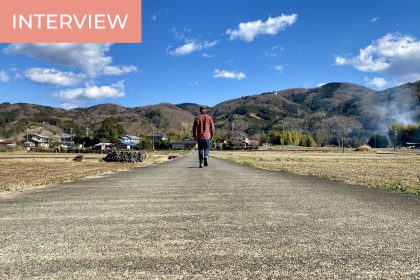For those with more adventurous personalities, taking advantage of the opportunity to live abroad is an obvious choice. For many of us, however, the idea of living in a new country, with all the language and cultural differences that come with it, is a difficult decision, even for an incredibly appealing country such as Japan.
Ironically, returning home after several years abroad can be even more daunting. Time doesn’t stand still while we’re away, and returning “home” is, temporally speaking, akin to traveling to yet another foreign country. This can be especially agonizing for those who made a career pivot to work in Japan, as it’s impossible to predict how such a move will be perceived in the job market back home.
Fortunately, in this article, I have the privilege of bringing you four success stories—friends and former colleagues who made the most of their time in Japan and leveraged their experiences here to find success upon returning to America. Their stories and advice are bound to ease at least some of the apprehension you may have about moving abroad, be it to or from Japan.
Tommy Adams (Product Designer)

How long did you live in Japan, and how would you describe your experience here?
I lived in Japan for 13 years. I started in Nagoya and then moved to Yokohama while working in neighboring Kawasaki. I went home for a year and then moved around Tokyo for eight years. So, I got to experience quite a lot while there.
I created and released professional music, allowing me to tour Japan’s nightlife for a while. I made friends from almost every country in the world and shared so many awesome memories with them. I also got to meet a lot of Japanese and international celebrities, for some odd reason.
While my experience was mostly good, it started to go toward bad, and I decided to hang it up for my Japanese life. I ended up trying to survive in Tokyo by freelancing, and thanks to my amazing network, I was able to live comfortably doing mostly video work.
A friend of mine was getting married in America, and her husband wanted me to film the wedding. So, after some thinking, and with a lot of money saved up, I decided to finally make my move back to America.
How did your experience in Japan influence your life and career in the United States?
Considering my personal experience with where and to what extent I worked, I believe I may have become too expecting of people to do what they say they will do. As an outgoing Californian, before I lived in Japan, I was very flakey about plans and doing what I would say I’d do. Now, I feel a bit annoyed when people don’t do what they told me they would—not being on time for a meeting, for example. On the plus side, I feel that I have become more reliable and trustworthy—it’s so weird to say that about myself. On the bad side, I disappoint myself with the expectations I put on others—it’s much easier to say this. To be honest, I wish I were half pre-Japan and half present-day.
My experience has helped a lot with work, as I am often complimented on timeliness and organization when working with non-Japanese teams. This then leads to more work! Another big change is that I’m far more patient after living in Japan. Being a teacher did that for sure!
What advice do you have for those who are thinking about living in Japan or those who are thinking about leaving Japan?
For those thinking of living in Japan, do it. I tell everyone who wants to go to Japan to just live there. Find some way to get to Japan, and experience it for yourself.
Never let anyone’s experience deter you from going. I almost did, and after all that I accomplished in Japan, I would have kicked my younger self—multiple times a day—for not going.
For those thinking about leaving Japan, make sure you have a lot of savings and solid options. Me not predicting the pandemic (How couldn’t I, right?) really hurt. My once hefty nest of savings was soon gone, as I failed to find lasting work in my field. Not until changing my whole career, did I find something full-time, and that was just yesterday [at the time of this interview].
Plan for everything, and really look at where your home country is today—not where it was before you left. Even a few years can change a lot, and home may no longer be what you thought it was.
Jeffrey Chen (Solutions Support Manager)

How long did you live in Japan, and how would you describe your experience here?
I lived in Japan for seven years, and I found the experience to be positive, formative, and fulfilling. I lived in Tokyo and worked as an English teacher. I really enjoyed being close to entertainment, dining, and culture. I appreciated the sense of community I felt every day.
How did your experience in Japan influence your life and career in the United States?
My work in Japan as an English teacher and education entrepreneur gave me the experience to transition into corporate training when I returned to the United States. The business experience also helped me move to my current role in special projects. English education, in particular, provides a great avenue for process analysis—if you look for it.
What advice do you have for those who are thinking about living in Japan or those who are thinking about leaving Japan?
Living in Japan is well-trodden ground. You can learn a lot from those who have gone before you. If you’re going to leave Japan, be sure to get your addresses, references, and contact information stored somewhere convenient. You’ll need them when you start applying for jobs in your home country. I don’t know how many recruiters actually tracked down my Japanese references, but I know they all asked for them.
Leanne Chen (Human Resource Manager)

How long did you live in Japan, and how would you describe your experience here?
I was in Japan for almost four years. I had an amazing experience—the sights, the food, the culture, the lifelong friendships, and meeting Jeff, now my husband and partner in life! I did have days where I doubted the decision to move to Japan because I was homesick, but the positive definitely outweighed the negative. I would do it again if I had the opportunity.
How did your experience in Japan influence your life and career in the United States?
Living in Japan further reinforced the notion of seeing things from others’ perspectives and gaining a better understanding of where people are coming from. Learning about a culture through TV, books, or training is helpful. However, living abroad—fully immersed in a society so different from the one I’m used to—had a much deeper impact. I’m more aware and in tune with how I approach people—both at work and outside of work. Having this intercultural competence provided a good primer to a related topic of diversity, equity, and inclusion.
Working as an English teacher/trainer in Japan made me more comfortable with public speaking. This influenced me to challenge myself more, whereas before, I would shy away from public speaking.
What advice do you have for those who are thinking about living in Japan or those who are thinking about leaving Japan?
For those thinking about living in Japan: go for it. Otherwise, you might always wonder what would’ve happened if you did. Of course, some preparation is recommended. Research and ask people about their experiences, explore ways to make a living and areas to live. Find a support system, and so on. Also, it’s helpful to have a Plan B to fall back on. For me, it was knowing I had enough money saved up to buy a one-way flight home if need be.
For those thinking about leaving Japan, I recommend going home or elsewhere for a couple of weeks and see how you feel. You may end up missing Japan while you’re away and realize you’re not ready to leave for good. I know everyone’s circumstances are different, but in general, I think it’s easier to go home than it is to return to Japan to live.
Clifford Robbins (Client Services Associate)

How long did you live in Japan, and how would you describe your experience here?
I lived in Japan for just over four and a half years, spending two and a half years in Niigata City and two in Tokyo. I would say the defining experience of life in Japan was unparalleled convenience and how it opened up so many possibilities for new experiences, whether it was long-distance travel by high-speed rail or the walkable nature of towns and cities.
I would also say that I felt a constant heightened awareness of everything. That probably comes with living overseas. I remember visually arresting urban landscapes, theme music in every store and restaurant, the endless stream of announcements, and dazzling signage. It just created an incredible texture of everyday life that I miss to this day.
How did your experience in Japan influence your life and career in the United States?
One of the biggest impacts that life in Japan (especially Tokyo) had on me, is an aversion to driving and a new preference for walkable cities and public transit, which seems crazy because I live in Los Angeles now. Living in Tokyo really gave me a taste of what the car-less commute is like, and I never got over it. For the past three years, I’ve either taken LA’s light rail system or walked to work.
As for my career, the Japanese professional environment really polished my customer service skills, and clients definitely notice it. Also, working as an English teacher helped develop the patience and communication skills for connecting on a basic, but personal, level with people from diverse cultural backgrounds with limited language proficiency. That has been very helpful in an area as international as Southern California.
What advice do you have for those who are thinking about living in Japan or those who are thinking about leaving Japan?
For those who are thinking about living in Japan, try to gain as much language skill as you possibly can wherever you are before moving. If nothing else, it will make little things like shopping, dining out, and traveling less stressful. At the same time, it will also open up a lot of opportunities for meeting new people and having new experiences. There are plenty of people who aren’t necessarily interested in learning English but would certainly like to talk to you. Connecting with those people and remembering those interactions will help you through the inevitable moments where you’re feeling isolated and out of place.
For the people who are heading home, start planning your career moves as far ahead of time as possible. Depending on your background, you might need to acquire new skills or brush up on existing ones, so take advantage of remote learning opportunities if possible. And definitely start talking to people in your network at home to make your job search easier.




